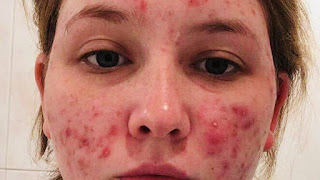Effects of Social Media on Mental Health
Social media has become an integral part of our daily lives. It provides us with a platform to connect with friends and family, share our experiences, and express ourselves. However, social media can also have a significant impact on our mental health, both positive and negative.
Key facts, As of January 2023, social media has a global reach of 59% of the world's population, with an average daily usage of 2 hours and 31 minutes.
POSITIVE EFFECTS OF SOCIAL MEDIA ON MENTAL HEALTH
On the positive side, social media can provide a sense of connection and community, especially for individuals who may feel isolated or have difficulty connecting with others in person. Social media can provide a platform for social support, activism, and self-expression. It can be a source of inspiration, motivation, and creativity.
✰Increase Social Support: Social media provides a platform for people to connect with others who share similar experiences and interests. This can create a sense of community and social support, which is important for maintaining good mental health.
For example, social media platforms such as Facebook, Twitter, and Instagram allow individuals to connect with others who share similar interests and experiences. This can be especially beneficial for individuals who may have difficulty finding others with similar interests in their local communities. Social media also allows individuals to engage in activism and social justice efforts, which can provide a sense of purpose and fulfillment.
✰ Improved Self-Expression: Social media provides a space for people to express themselves in ways that they might not be able to do in real life. This can be especially beneficial for people who may feel isolated or marginalized.
Additionally, social media platforms such as YouTube and TikTok allow individuals to express their creativity and showcase their talents to a global audience. This can be especially beneficial for individuals who may not have access to traditional avenues for self-expression, such as performing arts schools or creative writing programs.
✰Access To Mental Health Resources : Social media provides access to a wealth of mental health resources, including articles, videos, and support groups. This can be especially helpful for people who may not have access to mental health resources in their local communities.
✰ Increase Awareness: Social media can help raise awareness about mental health issues and promote mental health literacy. This can help people recognize the signs and symptoms of mental illness and seek help when needed.
✰ Reduced Stigma: Social media can help reduce the stigma surrounding mental illness. By providing a platform for people to share their experiences and stories, social media can help break down barriers and promote understanding.
NEGATIVE EFFECTS OF SOCIAL MEDIA ON MENTAL HEALTH
However, social media use can also have negative effects on mental health. Excessive social media use has been linked to increased feelings of loneliness, anxiety, depression, and low self-esteem, particularly among young people. This may be because social media use can lead to social comparison, where individuals compare themselves to others and feel inadequate or inferior. In this article, we will delve into the negative effects of social media on mental health.
✰ Social Comparison: One of the most significant negative impacts of social media on mental health is social comparison. Social media platforms can create unrealistic expectations of what our lives should be like leading to feelings of inadequacy and low self-esteem. It can also create a distorted perception of what others' lives
are like leading to feelings of envy and jealousy.
✰ Addiction: The constant need to check social media platforms can lead to addiction. Addiction to social media can lead to negative effects on mental health such as anxiety, depression, and sleep disorders.
✰ Cyberbullying: Social media platforms can become a breeding ground for cyberbullying, harassment, and hate speech. Victims of cyberbullying can experience anxiety, depression, and feelings of helplessness. This will can cause harm to your mental health if not noticed.
✰ Disrupted Sleep Patterns: The use of social media, especially before bedtime, can disrupt sleep patterns, which can lead to feelings of fatigue and irritability.As many individuals use social media late at night, which can disrupt sleep patterns and negatively affect mental health. This is especially true for young people, who are more likely to use social media at night and may be more susceptible to sleep disturbances. And this can cause serious problems to your mental health since you can't have enough sleep and rest.
✰ False Sense Of Connection: While social media platforms offer the illusion of connection, they can create a false sense of intimacy. This can lead to feelings of loneliness and disconnection from the real world
Tips to mitigate the negative effects of social media on mental health.
✐Limit your time on social media: Set boundaries around how much time you spend on social media each day and stick to them.
✐Engage in positive interactions: Focus on connecting with positive people and engaging in positive interactions on social media.
✐Practice self-care: Prioritize self-care activities, such as exercise, meditation, or spending time with friends and family.
✐Seek support: If you are experiencing the negative effects of social media on mental health, seek support from mental health professionals, family, or friends.
In conclusion, social media has both positive and negative effects on mental health. While it can provide a sense of connection and community, it can also lead to social comparison, cyberbullying, addiction, disrupted sleep patterns, and a false sense of connection. By limiting social media use and prioritizing self-care activities, we can mitigate the negative effects of social media on mental health.







Comments
Post a Comment